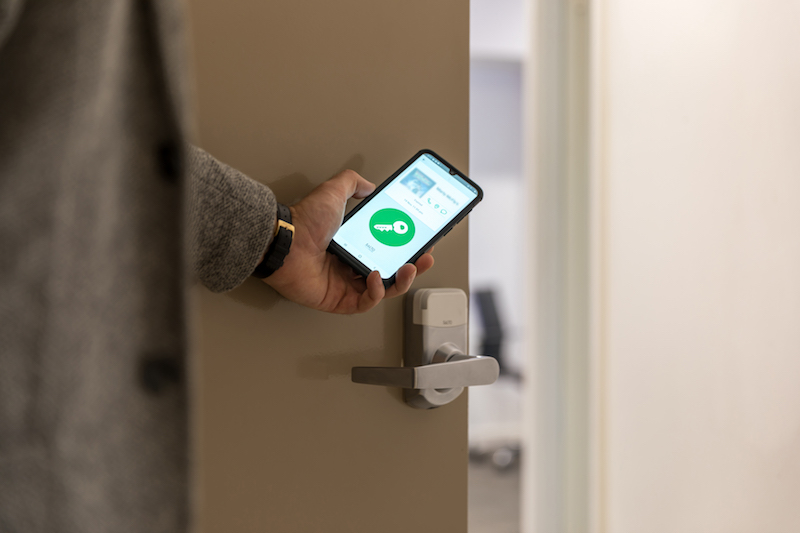Electronic Access Providing Social Housing Solution
Australia has a growing and urgent need for increased social and affordable housing.
The Community Housing Industry Association in partnership with the University of NSW identified the need for a million more homes by 2036, and community groups have taken up the challenge, demanding investment from the private and public sectors.
The requirements range from affordable family homes to crisis or temporary accommodation and housing built specifically for people with disabilities.
For property developers and community housing providers, the growing social and affordable housing and specialist disability accommodation (SDA) sectors offers opportunity, but also challenges, particularly in managing access and security.
If their accommodation is to ‘feel like home’, residents must know that they and their belongings are safe and secure. People with disabilities need to be able to access their accommodation independently. Operators want cost effective ways to manage multiple properties.
A wireless electronic access control (EAC) system such as Salto can provide the answer to these challenges.
Leveraging commercial-grade battery-operated locks, Salto replaces traditional keys with a ‘credential’, such as a plastic keycard, a fob or even the resident’s own smartphone.
Access is managed centrally, making access secure and cost effective.

Safe and secure
Everyone needs to feel safe and secure in their home, and particularly those in crisis. Social and affordable housing is often provided in shared settings, where residents need easy access but also need to know that their home is safe from unwanted intruders, either from within or outside the building.
An electronic access control system allows administrators to authorise very specific access, by floor, main access door, communal areas. Access can be blocked to certain areas after hours.
Credentials can be immediately cancelled, for example, when a resident moves out, or when it is reported lost or stolen, so that security is not compromised.
Digital keys, on the resident’s phone if they have one, reduce risk even further, as phones are less likely to be lost or lent, and are often secured with a password or fingerprint.
For those with a disability, using a traditional key is also problematic. They may not have the dexterity, or be able to get close enough to the door if they use a wheelchair.
An access card, or a fob or wristband that needs only to be in proximity to the door can give residents with a disability greater independence in accessing their home.
Property management
Community housing providers want to manage the accommodation as cost effectively as possible and a wireless EAC offers significant efficiencies.
If the property is a refurbished building, a locking system that requires little to no cabling like Salto’s enables retrofitting an EAC with minimal cost, time and disruption.
Many community housing providers manage multiple properties and the cost of having staff onsite, or travelling between properties to manage issues is significant.
With EAC, all properties can be managed centrally—if there is an issue, doors can be unlocked remotely, without a staff member having to be there.
An EAC will provide detailed audit reports of who’s accessed (or tried to access) which areas, and with the selection of an EAC that integrates with CCTV, the camera system can determine whether the person using the credential is the person authorised to use it.
Salto in action
South Port Community Housing provides long-term housing for the long-term homeless, recent migrants and other marginalised people.
“One of our biggest challenges was access control,” manager of housing operations Matt Kent said.
“We needed to make access easy for tenants, but at the same time reassure them that their room is secure.”
They found that the SALTO smart access control was the answer. Tenants have a fob or wristband for access and King manages the system remotely. Tenants feel reassured that their room is secure and SPCH has made significant savings now they don’t have to change keys and locks.
Christ Mission Possible sees similar benefits—they provide crisis accommodation of more than 60,000 beds a night with properties throughout Sydney.
Chief executive Martin Beckett said that: “when you’re homeless and on the streets, the number one thing is to feel safe and secure.”
“CMP’s tenants have a card that gives them access, via the lift, only to their own floor, and floors are all male or all female.
“The card expires on the day they leave, so it can’t be passed on to anyone else. It gives everyone a sense of ‘my property’s safe’.”
The social and affordable housing sector offers developers and operators the opportunity to provide housing that will make a genuine difference to the lives of thousands of Australians.
With the help of wireless electronic access control, Salto said, they can deliver one of the biggest requirements of this sector’s tenants—safety and security.
The Urban Developer is proud to partner with Salto to deliver this article to you. In doing so, we can continue to publish our daily news, information, insights and opinion to you, our valued readers.















